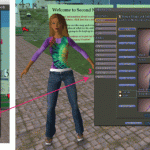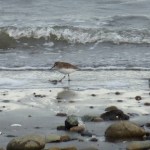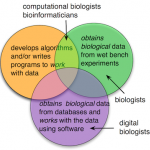Science Education
The National Evolutionary Synthesis Center (NESCent) and the North Carolina Museum of Natural Sciences invite you to a SHARK FRENZY!
"Big, Fast and Bulletproof: What One Biologist Has Learned From 300 Million Years Of Shark Evolution"**
Free lecture by shark expert and "Finding Nemo" technical advisor Dr. Adam Summers,
Assoc. Director of Friday Harbor Laboratories, University of Washington
Friday, February 12^th
6:30 - 7:30 p.m.
N.C. Museum of Natural Sciences
11 W. Jones Street, Downtown Raleigh
Space is limited. Reserve your free ticket now at https://tickets.naturalsciences.org
While you…
Is scheduled!
It will be held Feb 13 and 14 at Har Mar Mall, at the corner of County B and Snelling in Roseville MN.
Here's some info from the web site:
Have you been to the Home School Science Fairs? They are great! Some of the best and brightest kids in Minnesota were there. You could have learned how stable the Ark was in strong winds, how to, and how not to make yogurt, how weight effects the speed of a sled, and how to get energy from chicken droppings. Over 60 projects were up for display with many passersby stopping to check them out. It was a wonderful opportunity to place a…
This week on PRI/BBC World Science:
This month, the movie Creation opened in theaters across the United States.
The film chronicles the life and work of Charles Darwin.
The movie is directed by Jon Amiel. Paul Bettany stars as Darwin. Jennfer Connelly plays Darwin's wife, Emma.
Creation is based on a biography written by Charles Darwin's great great grandson, Randal Keynes.
Keynes is a conservation biologist who lives in London.
The World's science correspondent, Rhitu Chatterjee, spoke with Keynes about his famous ancestor and the experience of seeing his book turned into a movie.
Listen to…
On Tuesday I went to the monthly pizza lunch at Sigma Xi, featuring a guest lecture by Dr. David B. Eggleston, Professor of Marine, Earth and Atmospheric Science at North Carolina State University and the Director of Center for Marine Sciences and Technology (CMAST).
I posted a brief summary of the talk on the Science In The Triangle blog.
The following story is current, but the issue is not new. But interesting. ...
Science standards for Minnesota schools are about to be set for the next six years. Is the battle to keep pseudoscience out of our classrooms over? Sadly the door has been cracked open for intelligent design, an idea with no real scientific basis cooked up by creationists, to remain in Minnesota's classrooms.
The same vague science benchmark that was a compromise in the intelligent design controversy early in the Pawlenty administration still exists, unchanged, in this round of science standards. These standards…
Our first 2010 American Scientist pizza lunch is scheduled for noon, Tuesday, Jan. 26. at Sigma Xi in Research Triangle Park. No doubt you've heard about the many forces degrading coastlines. This time we'll hear from someone intimately involved with the challenges of conserving and restoring North Carolina coastal ecosystems, especially oyster reefs. That would be David Eggelston, a marine biologist and director of the Center for Marine Science and Technology at N.C. State University.
American Scientist Pizza Lunch is free and open to science journalists and science communicators of all…
There is an interesting conversation developing on The Intersection (What Should Science Organizations Say About Religion? Answer: A Lot) to which this is my response:
The conversation you have modeled here (people talking past each other ... see the original post) is very close to what actually happens in an NCSE like conversation, except that someone following the NCSE approach (as I usually do in this context) also mentions that for most religions this is not an issue, etc. etc. (I usually throw in a few quotes from this or that pope).
And, noting that many religious people have no…
Last weekend I attended Science Online 2010, which is a conference of science communicators with a heavy mix of bloggers, many journalists and others from the print industry, an increasingly large number of book authors, and OpenX (X=access, notebook, science, or whatever) advocates and practitioners.
Science Online is now reaching a tipping point. It is a fantastic conference partly because of its small size and its focus, but it is now becoming much more popular, and faces the possibility of growing over the next couple of years to become not what it is today. Perhaps it will evolve into a…
Okay, I'll grant that visiting Second Life can seem a bit uncomfortable, especially at first, but it does open some new doors and present an alternative to travel.
In flu season, virtual visits could be the next best thing to being there. (Yikes, that sounds like an ad. No more yahoo news for me!)
Here's where you can attend ScienceOnline 2010 in Second Life (http://slurl.com/secondlife/Research%20Triangle%20Park/128/129/25).
The next excuse might be that you don't know how to use Second Life or what to do. Never fear. That's a solvable problem.
I have a primer on attending a…
Unscientific America: How Scientific Illiteracy Threatens our Future by Chris Mooney and Sheril Kirshenbaum tries to make several different points. The central framework of the book, on which all the arguments are hung, is that science has a status, a place, in American culture, politics, and economy, and that this status has changed over time. Mooney and Kirshenbaum make the claim that science rose to an increasingly higher status than it had ever previously enjoyed through a series of events and transformations during the early and middle part of the 20th century, and subsequently,…
A common theme I hear in talks on personalized medicine, is that increased access to genomic data and medical literature are changing the relationship between doctors and patients. Patients are through being passive recipients of paternalistic health care. They are demanding to participate and be treated as partners with health care providers.
Citizen science can serve a similar role.
Just as personalized medicine is starting to make it possible for individuals to monitor and participate in their own personal health, citizen science is making it possible for people to participate and…
When I was a post-doc, I spent a few months seriously thinking about changing careers and teaching high school. I might have followed through on that plan, too, but I didn't know how to pay for it.
Today, if you have a background in science, technology, math, or engineering, you can retrain to become a teacher and the National Science Foundation will help. The Robert Noyce scholarship program has funds to help ease that transition to the classroom.
From the NSF web site:
The Robert Noyce Teacher Scholarship Program seeks to encourage talented science, technology, engineering, and…
Do citizen science efforts ever go beyond "feel good" contributions? Do the data get published in peer-reviewed journals?
In an earlier post, I started a list of citizen science projects that allow students to make a contribution. Many commentors are graciously adding to that list and I thank you all! I'm glad to learn there are so many interesting projects and ways for people to get involved. Science is so empowering!
My question today concerns things like outcomes and deliverables. We'd like to assume that good things are coming from citizen science because people are involved, but I…
Next Saturday afternoon, at ScienceOnline2010, the science goddess, the chemspider, and I will be presenting a workshop on getting students involved in citizen science.
In preparation, I'm compiling a set of links to projects that involve students in citizen science. If you know of any good citizen science efforts, please share them in the comments.
Here we go!
Before I start listing links, I am limiting this list to projects that allow both students and citizen scientists to participate. I know of plenty of student projects, where students can isolate phage and annotate their genomes or…
Blaine Bettinger has an absolutely wonderful post where he compares his results for type 2 diabetes from 23andMe and DeCODEme.
I really liked his post and I appreciated the way he showed the data from the two companies and elaborated on their interpretation of his genotype and his risk.
Interestingly, his story goes beyond a simple relationship, where one base changes, one amino acid changes, and voila! you've got the disease.
Bettinger describes what happens when there are changes in multiple genes and how those changes can have a cumulative effect on evaluating the risk of developing a…
"What's in a name? that which we call a rose
By any other name would smell as sweet"
- Juliet, from Romeo and Juliet by William Shakespeare
I realized from the comments on my previous post and from Mike's post that more explanations were in order.
It seems we have two topics - why do we need a new name at all? and why the current names (biologist, computational biologist, bioinformatician, etc.) don't work. What really distinguishes a digital biologist from a regular, garden variety biologist? Why isn't a digital biologist a computational biologist?
So, I brought along two "show and tell…
.... Have you ever had this happen: You are minding your own business, teaching your life science course, it's early in the term. A student, on the way out after class (never at the beginning of class, rarely during class) mentions something about "carbon dating." This usually happens around the time of year you are doing an overview of the main points of the course, but before you've gotten to the "evolution module"...
Jeanne d'Arc was a very influential 10th grader. I understand she gave her Life Science teachers a very hard time. This is the only contemporary depiction of Joan of…
If you're in Seattle, Dr. Bruce Alberts will be talking tomorrow night (Jan 5th) at the Seattle Aquarium on science education and the role that scientists play.
There are also some really interesting talks at a day-long workshop, Wednesday (Jan 6th) at the UW South Campus Center.
The details and registration info are below:
~ ~ ~ ~ ~ ~ ~ ~ ~ ~ ~ ~ ~ ~ ~ ~ ~ ~ ~ ~ ~ ~ ~ ~ ~ ~ ~ ~ ~ ~ ~ ~ ~ ~ ~ ~ ~ ~ ~ ~ ~ ~ ~ ~ ~
Tuesday:
COSEE Ocean Learning Communities & Washington SeaGrant Present
Redefining Science Education and the
Roles that Scientists Play in Society
Dr. Bruce Alberts
Tuesday,…


